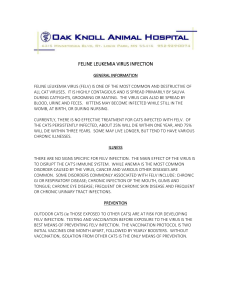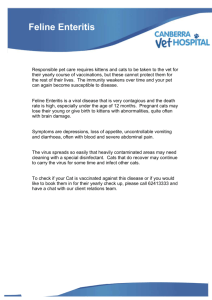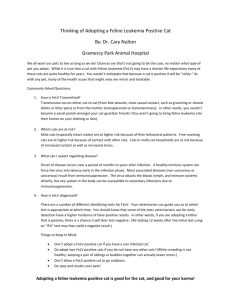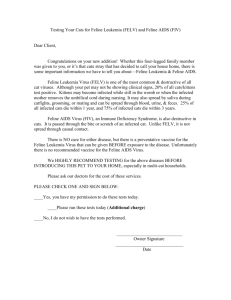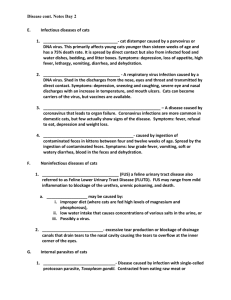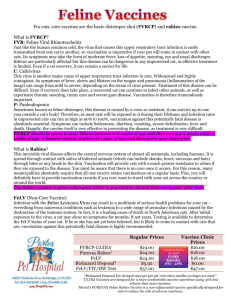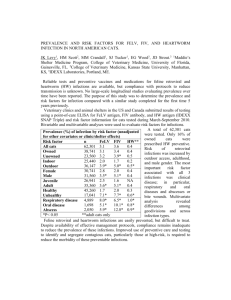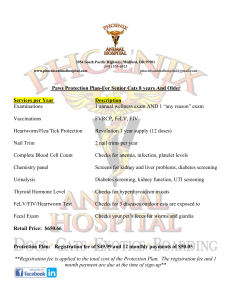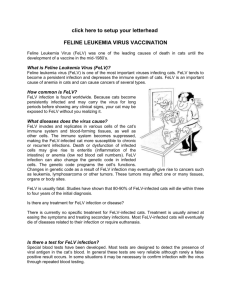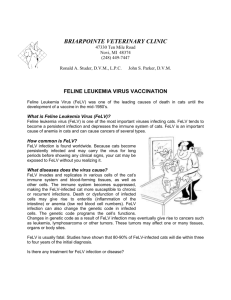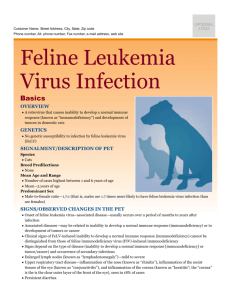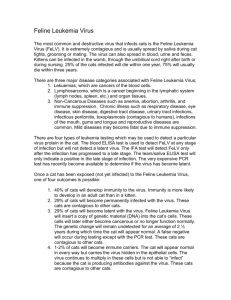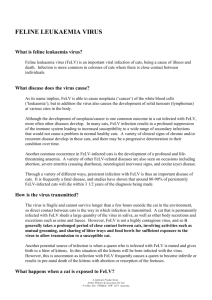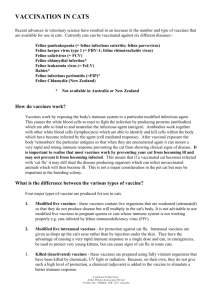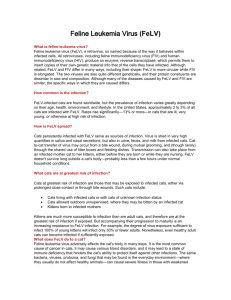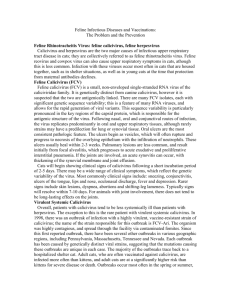Feline Leukemia Virus Infection
advertisement
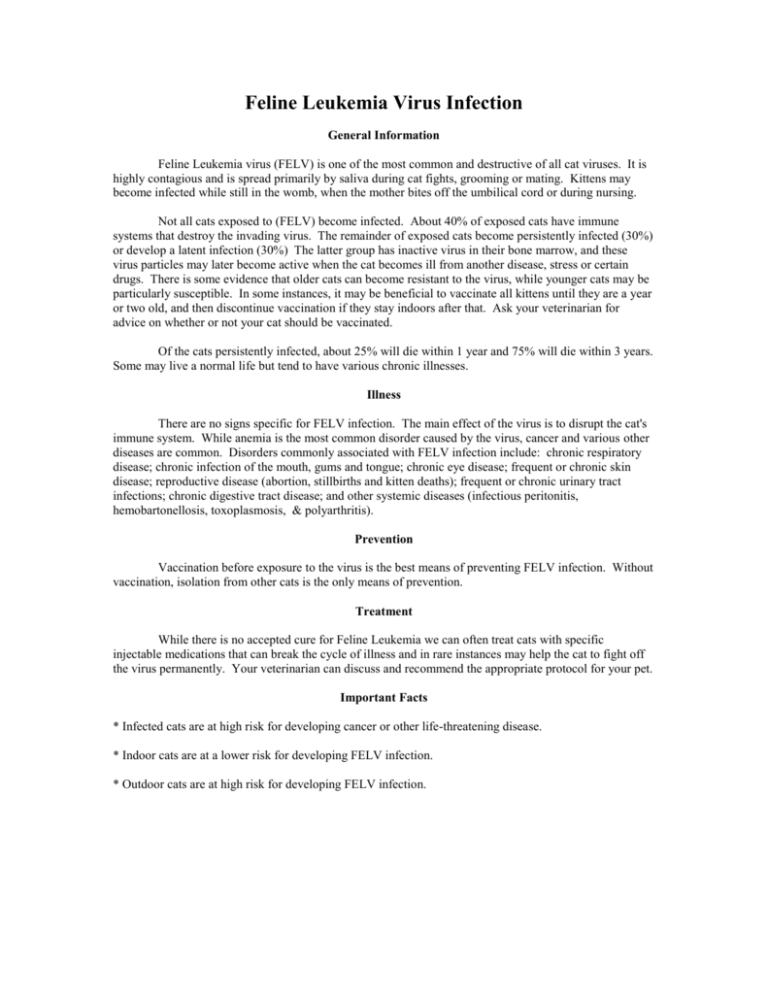
Feline Leukemia Virus Infection General Information Feline Leukemia virus (FELV) is one of the most common and destructive of all cat viruses. It is highly contagious and is spread primarily by saliva during cat fights, grooming or mating. Kittens may become infected while still in the womb, when the mother bites off the umbilical cord or during nursing. Not all cats exposed to (FELV) become infected. About 40% of exposed cats have immune systems that destroy the invading virus. The remainder of exposed cats become persistently infected (30%) or develop a latent infection (30%) The latter group has inactive virus in their bone marrow, and these virus particles may later become active when the cat becomes ill from another disease, stress or certain drugs. There is some evidence that older cats can become resistant to the virus, while younger cats may be particularly susceptible. In some instances, it may be beneficial to vaccinate all kittens until they are a year or two old, and then discontinue vaccination if they stay indoors after that. Ask your veterinarian for advice on whether or not your cat should be vaccinated. Of the cats persistently infected, about 25% will die within 1 year and 75% will die within 3 years. Some may live a normal life but tend to have various chronic illnesses. Illness There are no signs specific for FELV infection. The main effect of the virus is to disrupt the cat's immune system. While anemia is the most common disorder caused by the virus, cancer and various other diseases are common. Disorders commonly associated with FELV infection include: chronic respiratory disease; chronic infection of the mouth, gums and tongue; chronic eye disease; frequent or chronic skin disease; reproductive disease (abortion, stillbirths and kitten deaths); frequent or chronic urinary tract infections; chronic digestive tract disease; and other systemic diseases (infectious peritonitis, hemobartonellosis, toxoplasmosis, & polyarthritis). Prevention Vaccination before exposure to the virus is the best means of preventing FELV infection. Without vaccination, isolation from other cats is the only means of prevention. Treatment While there is no accepted cure for Feline Leukemia we can often treat cats with specific injectable medications that can break the cycle of illness and in rare instances may help the cat to fight off the virus permanently. Your veterinarian can discuss and recommend the appropriate protocol for your pet. Important Facts * Infected cats are at high risk for developing cancer or other life-threatening disease. * Indoor cats are at a lower risk for developing FELV infection. * Outdoor cats are at high risk for developing FELV infection.
